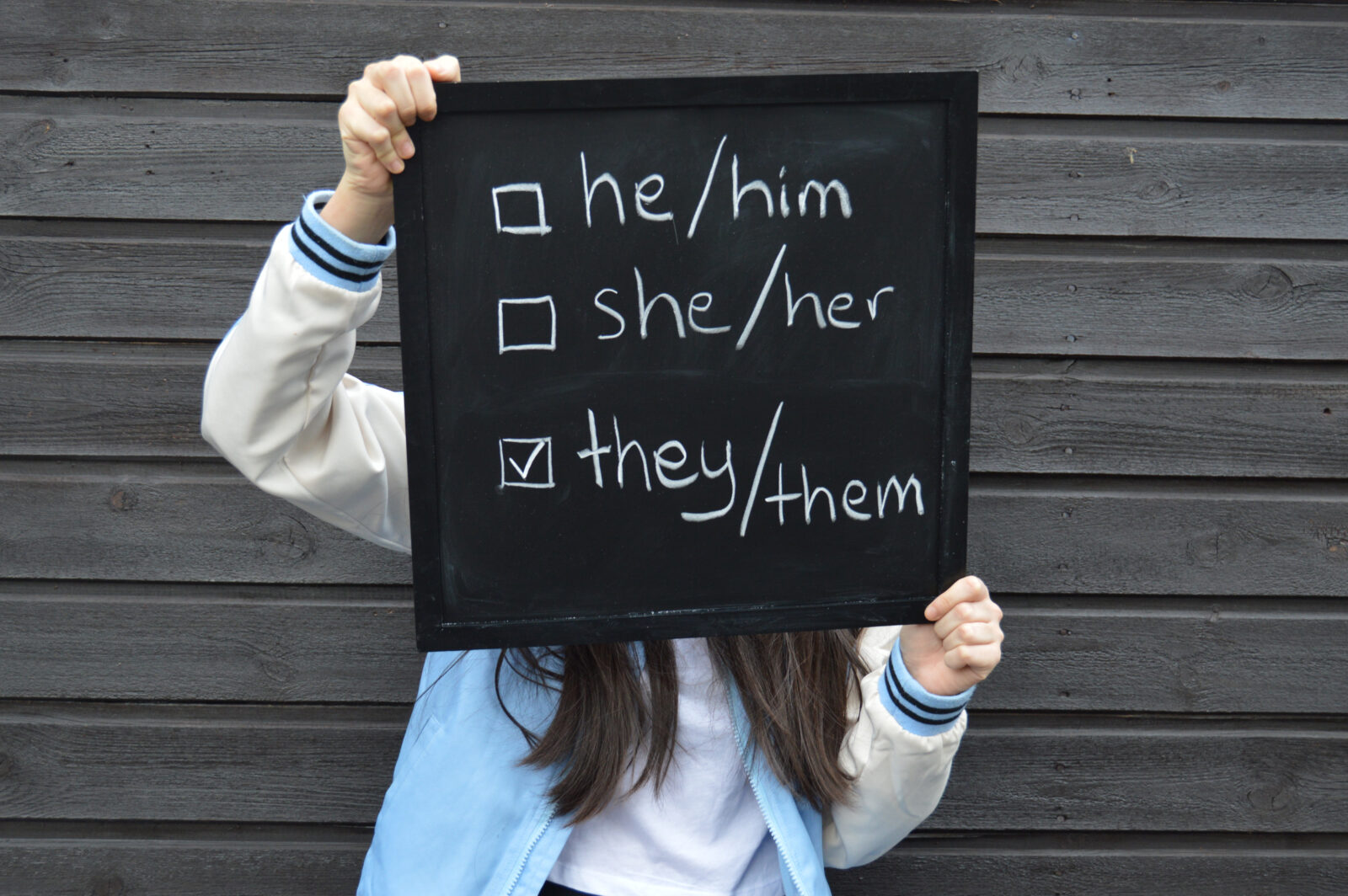‘Gender Hybrid’ Children?
Crossposted at HumanizeDemocrats claim to be the party of feminism. And yet, when it comes to protecting women and girls against radical gender ideology that denies the importance of sex as a crucial human identifier, the party’s leaders zealously cast females aside. Indeed, in their zeal to promote LGBT cultural agendas, progressives have become more misogynistic than the supposed “patriarchy” they claim to oppose.
The Biden administration just proved it. In a slap to the face to all American women and girls in schools and universities, the Department of Education dismantled many existing federal protections against actual sex discrimination promulgated under a civil rights law known as Title IX — which protects females against discrimination at public schools, colleges, and universities receiving federal funding — by unilaterally rewriting the law to apply to “gender,” which isn’t the same thing at all.
“Sex” is an objective reality focused on demonstrable differences in biology between males and females. Almost all of us are born one or the other, usually observed at birth by genitalia. (Yes, a tiny number of people possess ambiguous genitalia. But that is a medical condition and has nothing to do with identifying as a gender.) Beyond common sense observation, the differences in male and female sexes are scientifically definable. In the clearest example, only females produce large gametes (ova) that are fertilized during natural reproduction, while males contribute small reproductive cells (sperm) that fertilize.
In contrast, the contemporary use of the term “gender” is sociologically focused and entirely subjective. It elevates internal feelings over biological reality. In this radical concept, there are innumerable genders, and they can be changed almost at will. For example, a German law allows citizens to change their gender once a year simply by filling out a form.
Title IX was designed primarily to ensure equality for members of the female sex. But the new rules redefine and radically expand the scope of the law to include gender identity. Thus, men who identify as transwomen will now be protected under some aspects of Title IX — sometimes at the expense of the very females the law was intended to protect.
How so? As one example, it egregiously forces schools to allow members of the male sex who identify as women to use women’s locker rooms, restrooms, and other private female spaces. This would include shower and locker room areas. And remember, Title IX does not just apply to colleges and universities but all educational facilities that receive federal funding — meaning that even young girls could be faced with being undressed in front of members of the male sex in schools — as well as being forced to view them in a state of undress. And if the girls or women complain about this profound violation of their privacy and modesty, they could be accused of sex harassment, particularly if they use male pronouns to describe the sex of the person involved in the encounter!
This violation of female dignity already happens, of course. But — thanks to the Biden administration — schools will now be required to enable acts, that the women’s swimming champion Riley Gaines said accurately were only recently considered “a form of sexual assault [or] voyeurism.”
But the Biden bureaucrats could not care less. Even though there have been reported cases of men claiming to identify as women harassing or assaulting women in exclusive female spaces, DOE bureaucrats say in the new rule: “The Department does not agree with commenters who alleged there is evidence that transgender students pose a safety risk to cisgender students, or that the mere presence of a transgender person in a single-sex space compromises anyone’s legitimate privacy interest.” Tell that to the women who have been exposed in locker rooms to what have been ridiculously called “women with penises,” sometimes in a state of arousal. Tell that to the female prisoners raped by female-identifying prisoners in women’s prisons.
Some commenters were quick to point out that the new rules do not (yet) require schools to allow men who identify as transwomen to compete in female athletic competitions. True, but that isn’t because the administration doesn’t favor such coercion. Indeed, a different proposed rule — which remains pending in the Department of Education — would do just that in many cases.
But allowing members of the male sex to defeat females in sporting events polls badly, with a recent Gallup survey finding 69 percent believing athletes should compete with the sex they were born. Requiring women’s school sports to include members of the male sex would not be a good look in an election year. Thus, there seems little doubt that this exception to the Biden administration’s general rule requiring schools to adopt gender ideology by force of federal law is actually a disingenuous political punt designed to protect the president as he competes in what looks to be a very close presidential contest against Donald Trump.
Imposing gender ideology by bureaucratic fiat is like forcing schools to treat a Salvador Dali painting as reality. The new Title IX rules promulgated by the Biden administration surreally treat gender as if it were the same as sex, and in the process enable discrimination — and worse — against the very girls and women Title IX was designed to protect.
